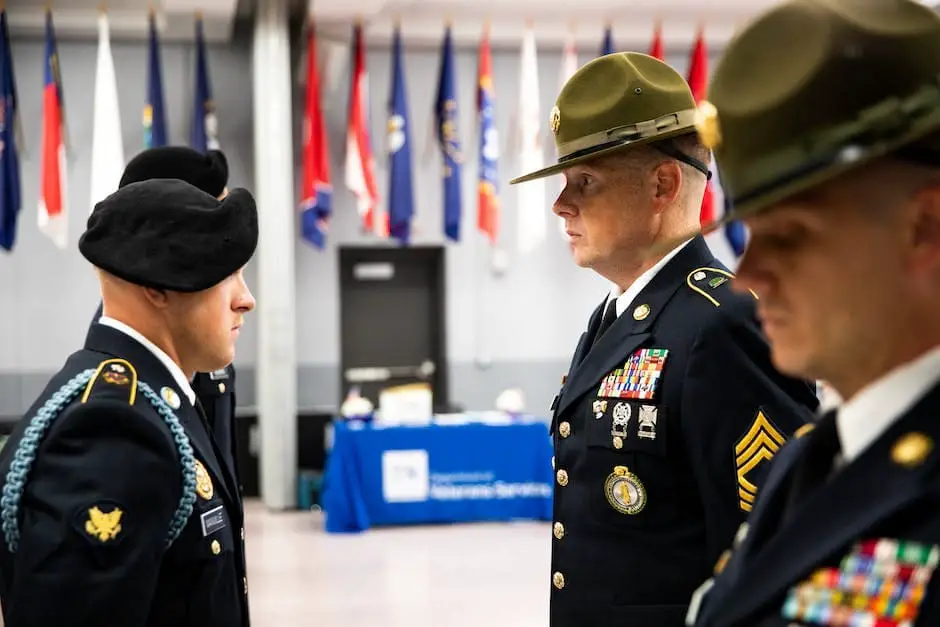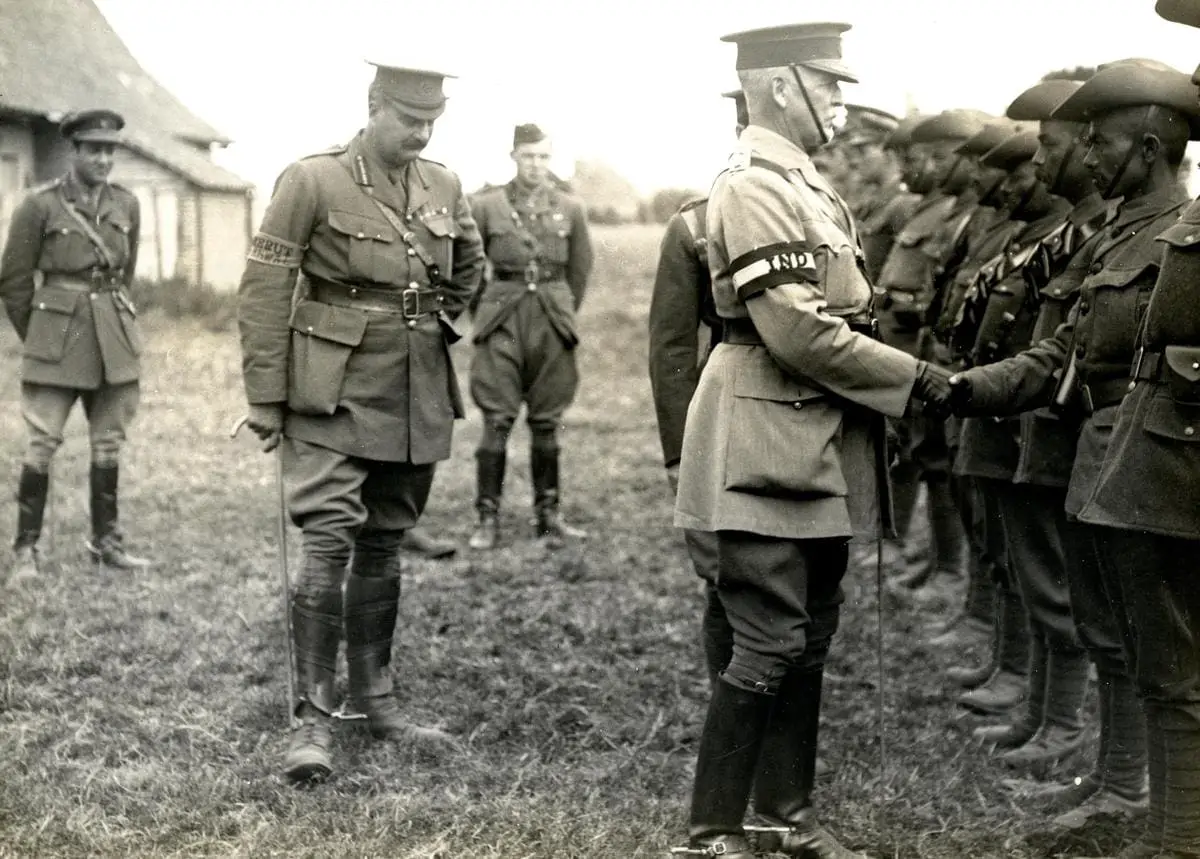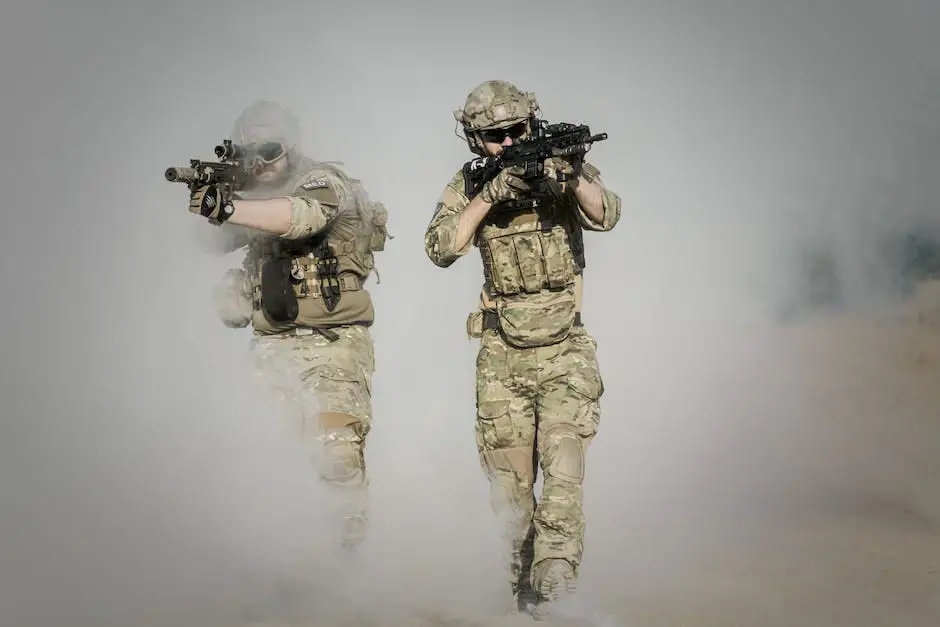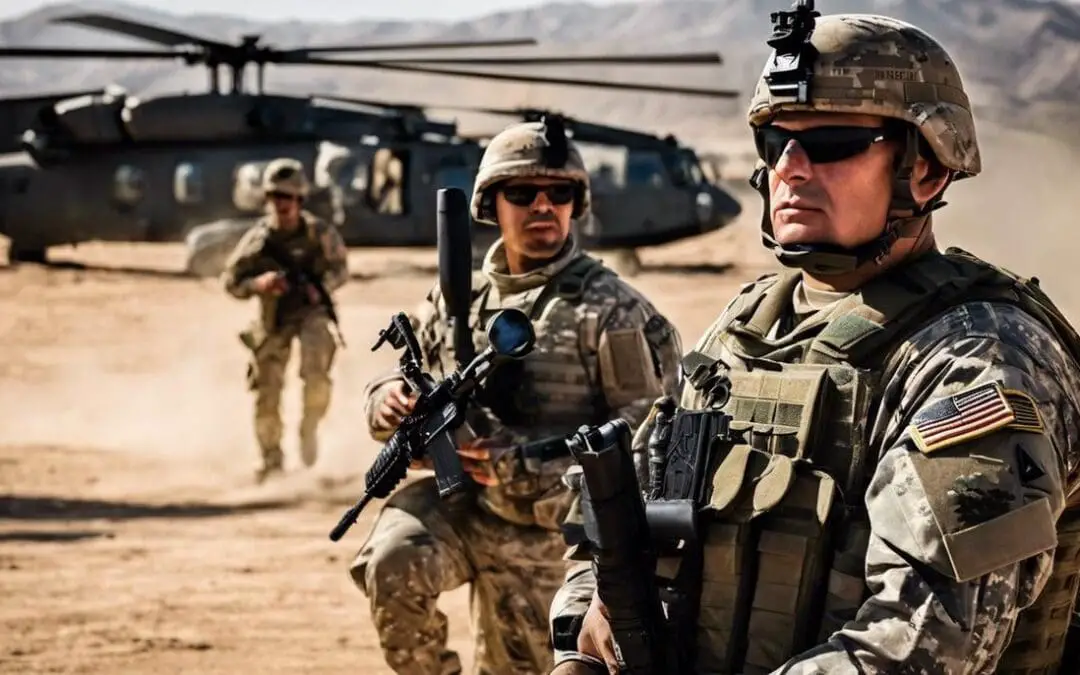Army Warrant Officers hold a critical place in the United States military hierarchy, performing specialized roles that significantly bolster the efficiency and success of military operations. Largely independent, these unique military professionals bear responsibilities that distinctively set them apart from other ranks in the military. Our exploration touches on their duties, selection process, procurement, and distinct Military Occupational Specialties (MOS)—each carrying an operational significance to the US Army. We will examine how their professional journey is shaped by a combination of rigorous training, mentorship, operational assignments, and formal education, and how these elements facilitate their career progression in a myriad of MOS.
The Specificity of Warrant Officer Duties
A thorough understanding of the roles and responsibilities within military hierarchies is crucial to appreciating the distinct designations. Among those roles, Warrant Officers in the U.S. Army bear a set of unique duties that distinguish them from their counterparts. Here are the key responsibilities that make Warrant Officers critical components of the U.S. Army:
- Technical Expertise: Warrant Officers are known as the Army’s technical experts. They are skilled operators, maintainers, administrators, and managers who understand advanced systems in their specialties. They are responsible for retaining an intimate knowledge of their subject matter that extends beyond the traditional career field of a Commissioned Officer.
- Leader Roles: Despite being outnumbered by both non-commissioned and commissioned officers, Warrant Officers occupy essential leadership roles. Acting as a vital link between these two levels of command, Warrant Officers provide guidance, mentorship, and their technical expertise on organizational commands.
- Professional Development: Warrant Officers are expected to continuously advance their professional development. This pursuit includes attending professional military education courses to hone their specialization further, maintaining their standing as subject matter experts in their fields.
- Advisory Capacities: As possessing expansive knowledge about technical and tactical operations, Warrant Officers serve in advisory roles to Commanders and Subordinate Commanders. Their advice and input significantly impact decisions related to their area of expertise and influence the overall command strategy.
- System Integration: Warrant Officers play a crucial role in integrating new technology and systems into the existing Army framework. They analyze, interpret, and recommend necessary adaptations, ensuring smooth incorporation and utilization of new advancements within their area of specialization.
- Training Responsibilities: Within their purview, Warrant Officers shoulder the responsibility of training enlisted members and newly Commissioned Officers in their respective specialties. They help develop valuable skills, imparting specialized knowledge that can contribute to the efficiency and effectiveness of the force.
The unique landscape of responsibilities that Warrant Officers occupy clearly distinguishes them from other professional roles within the military. Their high-level technical expertise combined with leadership positions, advising roles, and the expectation of continuous professional development, positions them as key players within the army command structure. By operating, maintaining, integrating, and managing Army’s sophisticated equipment, Warrant Officers fulfill specialized roles that significantly contribute to the operational readiness of the U.S. Army.

Dynamics of Warrant Officer Career Progression
Beyond the boundaries of fundamental roles such as in-depth technical expertise, leader roles, professional development, advisory capacities, system integration, and training responsibilities, there exist several other cardinal strides marking the progressive trajectory of a Warrant Officer’s structured career development.
A pivotal aspect of this journey is Operational Dependability. Warrant Officers are frequently equipped for high-stress environments and assignments that demand a consistent display of exceptional decision-making skills. This boots-on-the-ground proficiency allows them to understand the bare-bones realities of military operations. Over the period, these experiences add up to create Warrant Officers who aren’t simply theoretical experts but seasoned veterans able to make decisions based on extensive operational knowledge.
Interdisciplinary skills are another critical stepping stone in a Warrant Officer’s career. The modern battlefield is multifaceted, implicating facets like logistics, cyberwarfare, psychological operations, and so on. A Warrant Officer, therefore, must not only be an expert in his or her specific field but also competent in understanding the holistic dynamics of warfare.
Furthermore, the ability to innovate within constraints is a significant career development pointer for Warrant Officers. With technology alterations pacing the dynamics of warfare, a Warrant Officer must be flexible and adaptive enough to take advantage of these changes. Innovation isn’t solely about using new tools; it’s also about improvising existing procedures and protocols to exploit the utmost efficiency in any given scenario.
Global strategic comprehension is yet another integral prong in a Warrant Officer’s career development. Warrant Officers are often involved in decision-making processes that have far-reaching implications. Hence, a comprehensive understanding of international relations, politics, and complex global issues is vital to anticipate consequences accurately and make informed decisions.
Advancement in a Warrant Officer’s career is also largely dictated by Mentorship merits. As Warrant Officers progress to higher ranks, they become instrumental in shaping the future of the military by aiding in the development of young cadets and junior officers. The ability to mentor and guide the next generation is essential in setting the trajectory for their career progression.
In conclusion, the career of a Warrant Officer is multi-tiered, complex, and peppered with challenges. Nevertheless, the multi-dimensional nature of the role gives rise to an individual with a robust skill set that extends beyond singular specialized knowledge to multidimensional mastery across an array of military sciences.

Photo by britishlibrary on Unsplash
Decoding the Army Warrant Officer Selection Process
Navigational Literacy
In the grand tapestry of Army operations, the role of a Warrant Officer often equates to being the lynchpin. This necessitates a robust understanding of the various operational domains within which they will inevitably function. Proficient navigation through complex military terrain, understanding both the literal and figurative landscapes of their assignments, is an absolute necessity. A Warrant Officer Candidate needs to demonstrate extreme competence in distinguishing the details as well as recognizing the macro views of any given operation.
Personal Resilience
Working within one of the most formidable forces on the planet, a Warrant Officer must exemplify tenacity, resilience, and steadfastness. The selection process measures the psychological and physiological fitness of the candidate rigorously. The criterion aims to recruit individuals who can endure the stress of operational hardship and demonstrate flexibility in the face of unexpected challenges.
Ethical Leadership
Despite being technical experts, Warrant Officers are also leaders; people who lead by example and nurture an environment of respect, integrity, and honesty. Their actions underpin the Army’s core values, making it paramount that they showcase these principles. The selection process evaluates the candidate’s moral grounding and their ability to instill ethical behavior in the ranks they lead.
Esprit De Corps
The spirit, or morale, of a unit has a direct influence on its success. As leaders, Warrant Officers have a responsibility to foster Esprit de Corps within their units. Candidates must demonstrate the potential to motivate, inspire, and maintain high levels of morale within their teams.
Mastery of Specialization
Whereas commissioned officers often hold broad management roles, Warrant Officers are technical and tactical experts in their respective specialties. The selection process scrutinizes a candidate’s depth of knowledge and expertise in their chosen area. A candidate’s past experiences, educational credentials, appropriate certifications, and overall command of their specialization all contribute to their potential applicability as a Warrant Officer.
Long before they put on the distinctive insignia of a Warrant Officer, candidates must endure a rigorous and demanding selection process. These critical parameters assure the Army, and the nation it serves, that the individuals who emerge from this challenge will exemplify the highest standards of expertise, leadership, and dedicated service.

MOS Specialties and Their Operational Implications
Operational Dependability
This essential feature of various MOS roles posits consistency and reliability at the core of military success in the U.S. Army. An optimal blend of precision, attention to detail, and unyielding stability ensures both the team and equipment are operationally sound, thereby promoting the functionality of the entire unit. This dependability broadens the range of successful missions and ensures efficiency in the face of changing circumstances.
Interdisciplinary Skills
Each MOS specialty brings a unique set of interdisciplinary skills, which are crucial for accomplishing complex tasks, traversing various operational terrains, and creating comprehensive strategies. They provide the ability to understand and connect various fields of expertise, which in turn enhances operational functionality within the U.S. Army in various dimensions and capacities.
Innovation Within Constraints
The constraints of a military environment induce a necessity for innovation. MOS roles instigate this crucial innovation, allowing the U.S. Army to remain agile and adaptable in rapidly evolving circumstances. Innovations in technology, operations management, or any other domain based on the specific MOS, facilitate operational flexibility and enhance overall military efficacy.
Global Strategic Comprehension
MOS specialists play a pivotal role in developing a nuanced comprehension of global strategies. They understand the geopolitical landscape, contingent operational tactics, and strategic alliances. This varied and layered outlook enables the U.S. Army to successfully uphold national and international security interests.
Mentorship Merits
MOS roles contribute to the overall quality of mentorship within the military ranks. From seasoned veterans to newer enlistees, each service member benefits from shared expertise and experiences. This nurturing synergy propels the culture of continuous learning and development, and strengthens the military community as a whole.
Navigational Literacy
Mastery in the art and science of navigation is essential, whether it pertains to land, air, sea, or beyond. With exacting precision and profound understanding of the terrain, these specialists ensure safety and accuracy in traversing even the most challenging environments.
Personal Resilience
As part of their training, MOS specialists develop resilience to physical, mental, and emotional stressors. This fortitude enables them to maintain optimum functionality in challenging situations, and contribute significantly to the hardy spirit of the U.S. Army.
Ethical Leadership
The tenacity to maintain high ethical standards in tense and challenging situations is significant amongst MOS specialists. They not only have the essential moral courage but are also trained to lead in maintaining the rigorous ethical code prevalent in the U.S. Army.
Esprit De Corps
MOS specialists nurture and propagate the spirit of camaraderie and shared dedication among the ranks. This sense of shared commitment and unity, the renowned esprit de corps, underscores the robustness and effectiveness of the U.S. Army in operations.
Mastery of Specialization
Finally, their deep-rooted mastery in their respective specializations contribute directly towards enhancing the operational functionality within the U.S. Army. Whether a radio operator, an intelligence analyst, or a combat medic, the unique skills and knowledge of each MOS specialist coalesce to form the robust framework propelling the U.S. Army’s mission success.

Warrant Officers occupy an indispensable position within the U.S Army, with their exceptionally specialized roles playing a pivotal part in enhancing the effectiveness of military endeavors. Through an understanding of the unique journey that underpins the rise to a Warrant Officer—from a stringent selection process through to career progression—we gain a clearer understanding of the roles these professionals play in the different MOS specialties. Whether serving in aviation, intelligence, technology, or human resources among other fields, the operational implications of these roles reaffirm the far-reaching influence and importance of Warrant Officers within the U.S Army.


